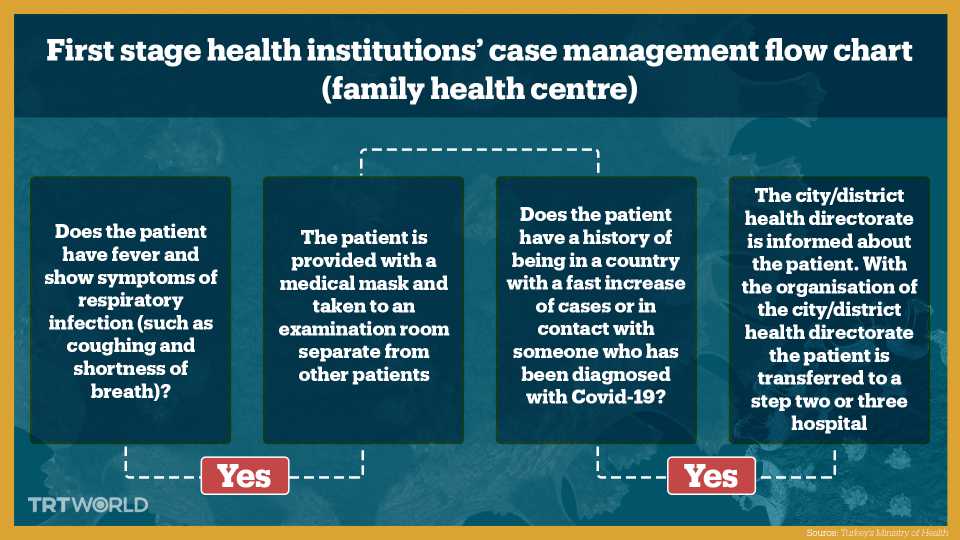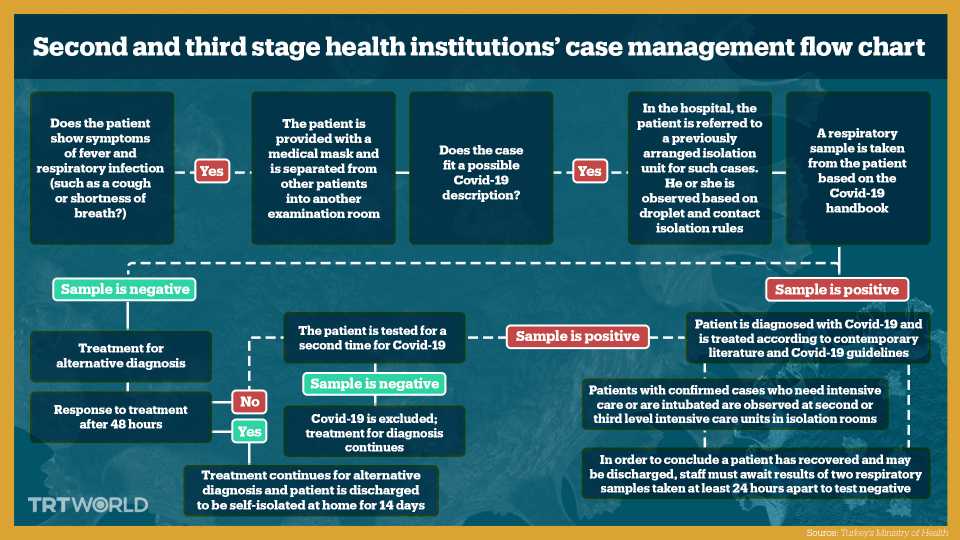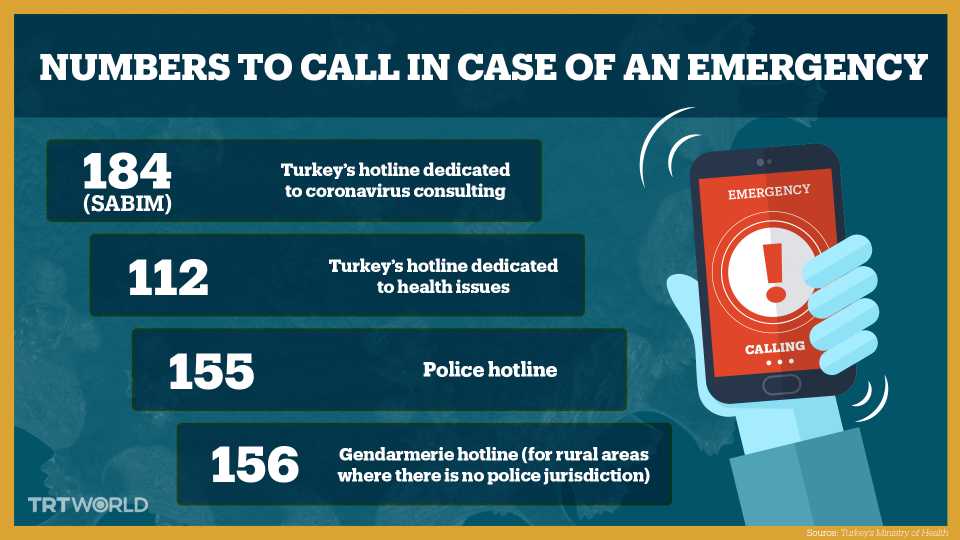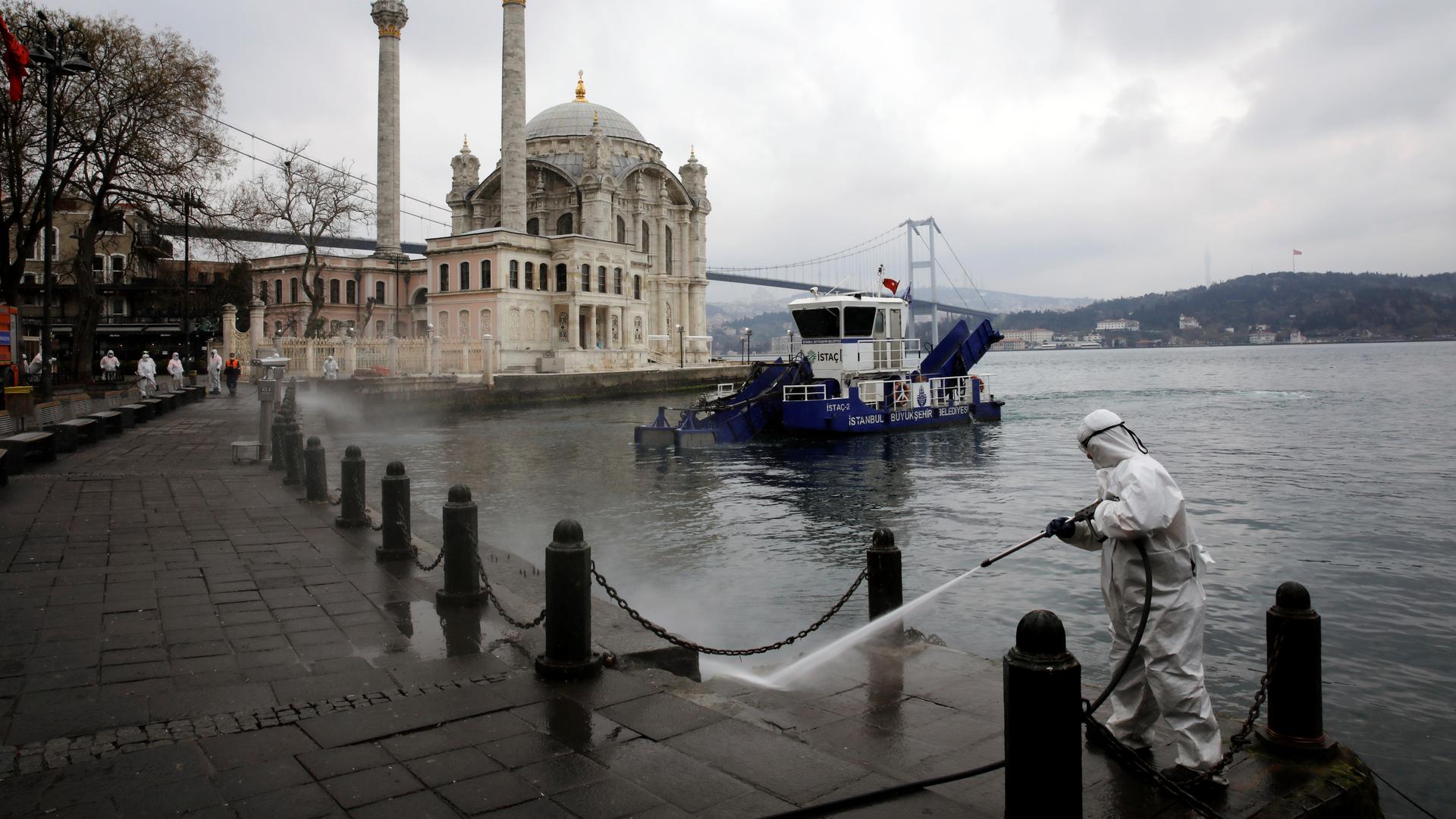Coronavirus cases first appeared in Turkey on March 11, and have been increasing rapidly just like they are in the rest of the world. There have been at least 1,529 infections and 37 deaths in the country because of Covid-19.
TRT World has looked into where and how someone can get tested in Turkey. Health authorities recommend that patients who believe they have been infected with the coronavirus to seek help from Family Health Centres (ASM), Prof Dr Nur Baran Aksakal says.
Dr Baran Aksakal has been continuing her academic investigations and studies in Gazi University Department of Public Health. She is also a member of World Health Organization’s European Technical Advisory Group of Experts (ETAGE) on immunisation.
Dr Baran Aksakal points out that not everyone who wants to get tested will be tested, that they have to fit a certain criteria.
“The family health centre will ask diagnostic questions; if the patient fits these diagnostic criteria, then he or she will be fitted with a mask if they came in without one, and sent to the secondary or tertiary stage of the Covid-19 response.”

“What’s important is whether the patient came in from overseas recently, or had contact with a person diagnosed with Covid-19,” she adds.
If the patient went directly to the hospital exhibiting symptoms that health officials suspect may fit Covid-19 symptoms,” Dr Baran Aksakal hypothesises, “then he or she will be fitted with a mask, isolated and a sample will be taken. If negative, they will be observed for 48 hours and tested again. If positive [for Covid-19], standard treatment will begin.”
Dr Baran Aksakal warns not everyone who has a runny nose should rush to a health clinic or to hospital to avoid overwhelming healthcare professionals and the infrastructure. In those cases, she recommends, the patient should call the emergency hotline 184.
According to Dr Baran Aksakal, Turkey’s Ministry of Health shares its findings with the Science Board but does not specify the number of cases per city to avoid public panic. Dr Baran Aksakal also says she receives minute-by-minute information from colleagues but that this information remains private.

The most important thing to do during the pandemic, she believes, is to emphasise to the public the seriousness of the situation and to urge them to stay home and follow social distancing guidelines.
“We use examples from around the world,” she says, “but some Turkish citizens still act as if they’re unaware of the gravity of the pandemic.”
Turkey has just banned those over 65 from leaving their homes; if caught, there is a fine of around $478 (3,150 Turkish Lira). Authorities have stressed that this is to ensure the safety of the elderly population who are at a high risk of contracting and dying from the coronavirus.
These are the four major hotlines in Turkey right now: 184, which exclusively handles coronavirus cases, 112, related to all kinds of health questions and requests, 155 for the police, and 156 for the gendarmerie in rural areas.
According to Turkish media reports, 112 also has English speakers for foreign nationals even though a caller may not reach an English-speaker right away on his or her first call. The general emergency hotline can help with doctors’ visits, renewing prescriptions (which are now automatic for those over 65), calling an ambulance and the like.

There is also the Eczane (“pharmacy” in Turkish) app, which lists pharmacies that are open at night in each neighbourhood. In Turkey, pharmacies usually operate until 7 PM from Monday to Saturday.
For Saturdays and nights, each neighbourhood has a rotating list of pharmacies that stay open to serve emergency cases. The app lets the user choose city, municipality and neighbourhood to see where they can go for help.
Turkey’s Minister of Health announced that Turkey has 25,466 adult intensive care unit beds (ICU). “Turkey is lucky in terms of ICU bed capacity. The ICU bed capacity per 100 thousand people is 40 in Turkey, while it is 29 in Germany, 13 in Italy and 12 in France,” Fahrettin Koca said.
“We have 99, 797 single patient rooms which can also be used as isolation or ICU rooms, if necessary. City hospitals have been a huge advantage on this matter.”
“We are ready for every possible scenario in terms of physical or technological infrastructure”, added Koca, in his speech to the parliament on March 23.










Discussion about this post